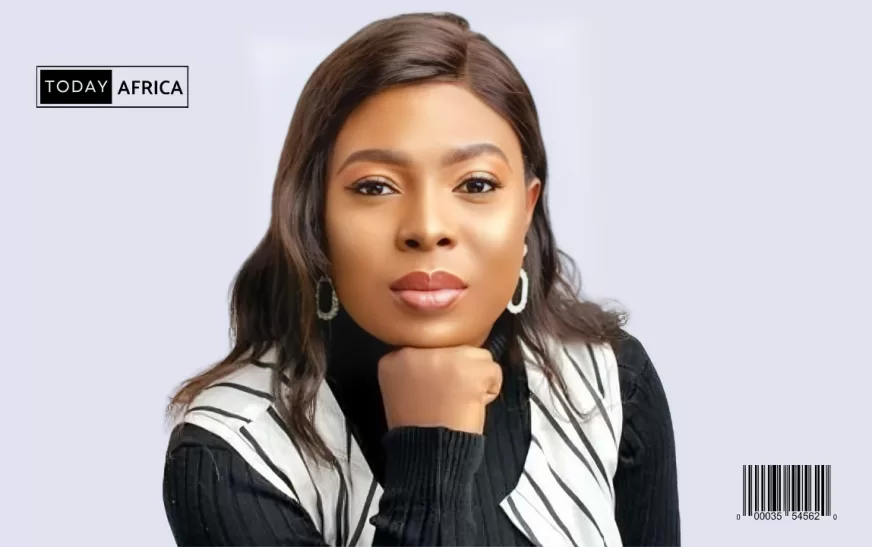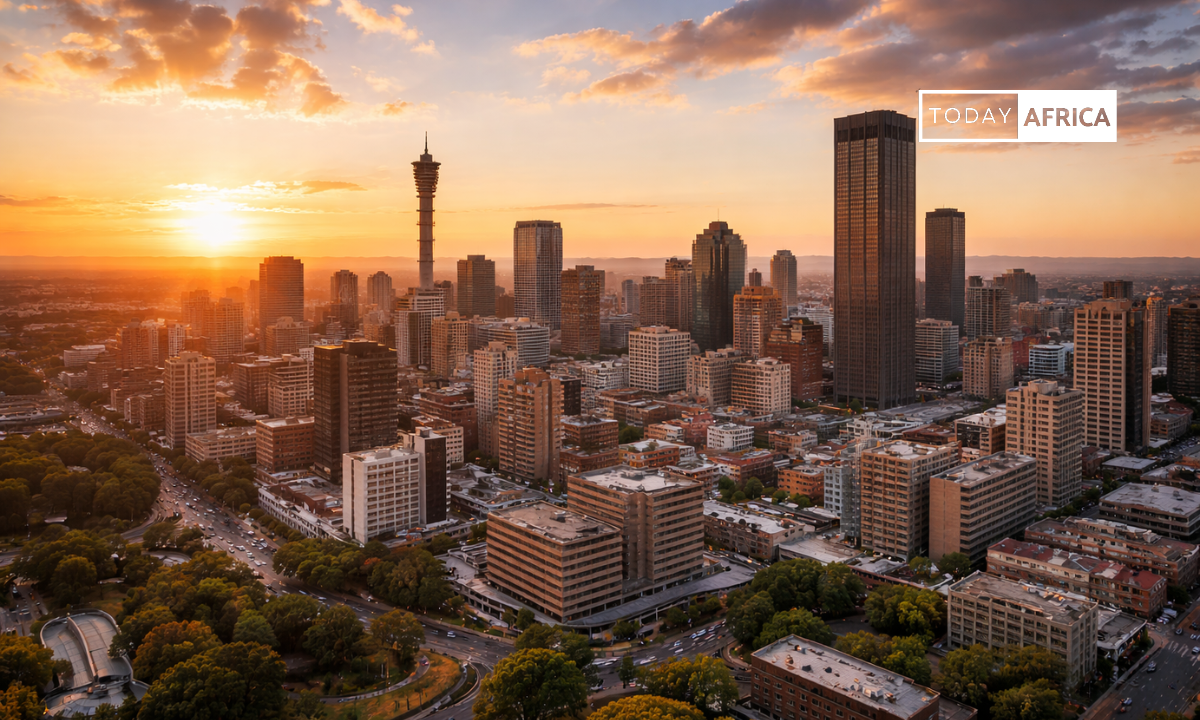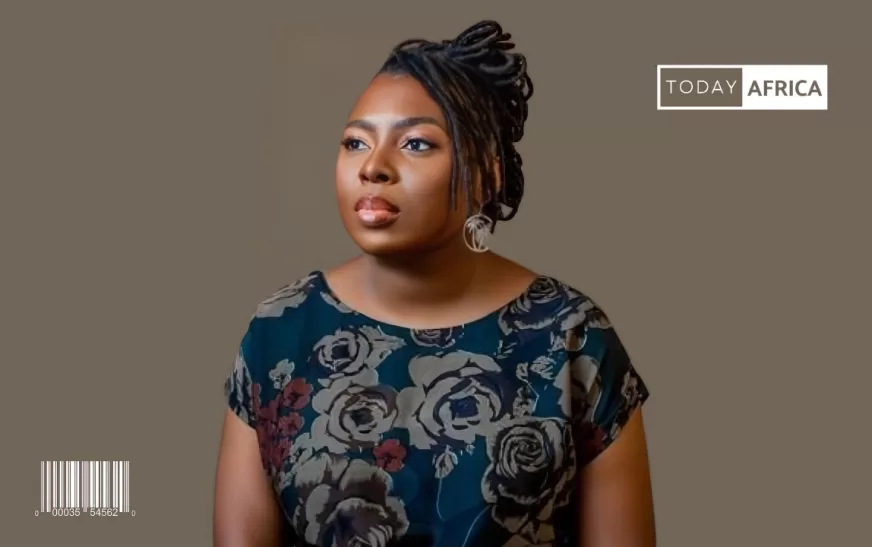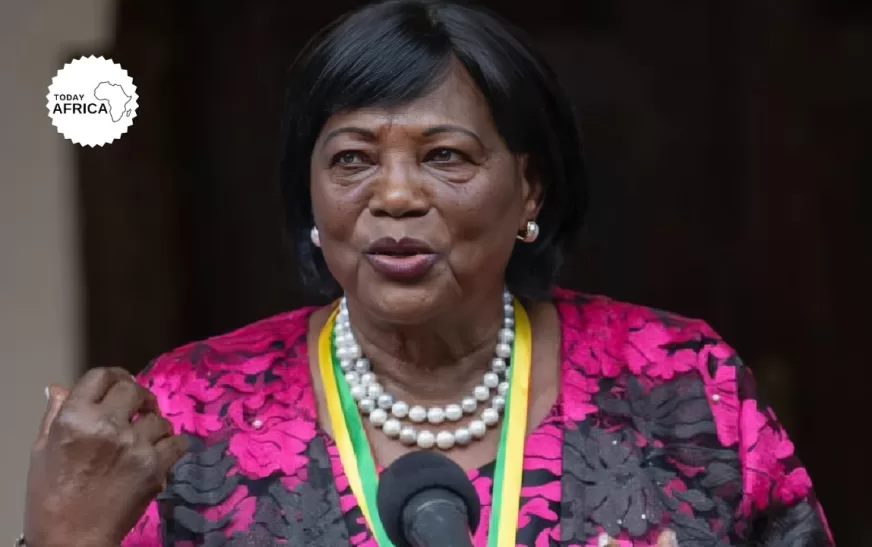Dr. Adekemi Adeniyan is a dentist and the founder and executive director of DentalCare Foundation, a non-profit organization which promotes oral health equity in under-served communities, based in Ado Ekiti, Nigeria. Adekemi is passionate about shaping the future of oral health and advancing health equity in under-served communities.
She’s a graduate of Bachelor of Dental Surgery from Ternopil National Medical University, Ukraine. She also holds a Masters degree in Medical Leadership from Lancaster University, United Kingdom. Adekemi is a Senior New Voices Fellow at the Aspen Institute and a Senior Atlantic Fellow for Health Equity at George Washington University.
She is an Alumna of the Young African Leaders Initiative RLC, West Africa. An associate fellow of the Royal Commonwealth Society, United Kingdom. Dr. Adekemi is the 2019 winner of the Nigerian Her Network “Woman of the Year” award for Healthcare and was listed among the 2020 Leading Ladies Africa “100 most inspiring women in Nigeria.”.
Dr. Adekemi Adeniyan is the author of the first oral health story book in Nigeria “The Girl Who Found Her Smile” and producer of the Oral Health Animation Series “Anita Says”
Tell us a bit about yourself
I’m a rural dentist. I see myself as a rural dentist because I work in the rural community. I’m currently based in Ado-Ekiti. So I’m an oral health advocate which means I am very passionate about everything that has to do with the mouth.
And I’m currently the founder and executive director of a non-profit organization called Dentalcare Foundation. It’s a non-profit organization that works in rural communities to promote oral health equity for children, especially living in these underserved communities.
I’m also the author of an all-right-out story book called The Girl Who Found Her Smile, as I am also passionate about writing and passionate about using art to promote health in rural communities. So that’s a little bit about me.
And of course, if I say let me trace it back to growing up, I grew up in Lagos. I grew up in Agege Lagos. So I wasn’t all well and rosy. I grew up with four siblings. And even though my parents were in the medical line, my dad being a doctor and my mom being a nurse, we still couldn’t afford a lot as a child.
I remember that even as a child, we had to decide whose school fees was going to get paid this month to get to school. This was one of the things that inspired me to the work that I do right now.
I remember even being as little as a child and I had toothache then. I couldn’t even see a dentist until I was 21. So I was like, I really wanted to change the lives of kids that grew up the way I grew up. And that’s what actually really drove me to the work that I do now. So that’s just a little bit about me.
Tell us the story behind founding the DentalCare Foundation. And why focus on oral health in underserved communities?
After I graduated from dental school, because I had my dental school in Ukraine. I moved to Nigeria. So my goal was actually, even though I knew I wanted to work in rural communities, my goal was probably work in Nigeria for a while then travel. Get some knowledge and maybe get some money and come back to Nigeria.
But then I was posted to Ekiti State for my NYSC and I was moved to a rural community called Ikere. Every single day I would go to work and children would come in with issues with their teeth. That’s children that have missed schools. Their parents brought them out from school because they had this severe toothache.
I remember I would strictly charge them or simply charge them 2000 naira and the parent would say no I’m sorry I can’t afford that. The child would go away and almost like a month or so later they are coming back with the tooth totally destroyed and a child’s face looking totally disfigured. And that seemed to be my everyday life for the next one year.
It was so devastating for me to see that there were so many inequities in these rural communities. Children came in that all they needed was a feeling. And my boss would look at me and say, Dr. Kemi, there’s nothing we can do about it. We just have to remove the tape because they can’t afford this.
And it’s not just, and it’s just so painful knowing that a child is going to lose a tooth that they can never replace for life just because they can’t afford it. And this was what drove even the passion I had more for the underserved more into me.
I was like, oh, really, I have to do something about this. But I think the fear that everyone has. If I do something about it, this is money. And so I stopped for a while. I was like, no, I think I’ll just like to continue praying about this and see what God can do about this situation.
And one day I was talking to my mentor about this and how there’s so much children losing their teeth not being able to even return to school, some being bullied because of the shape of their mouth and there’s nothing. My mentor looked at me and said if you don’t start today you’re never going to start. It’s not about money it’s about capital and people are your capital. So go at it.
I think that was what motivated me and changed my life forever. So one day I just decided I’m going to start this. This is really what I’m passionate about. I want to see children’s lives being changed. And one day I sat down, I said, okay, I’m going to start this. And I tried to call families and friends and put together people and say, okay, this is what we want to do.
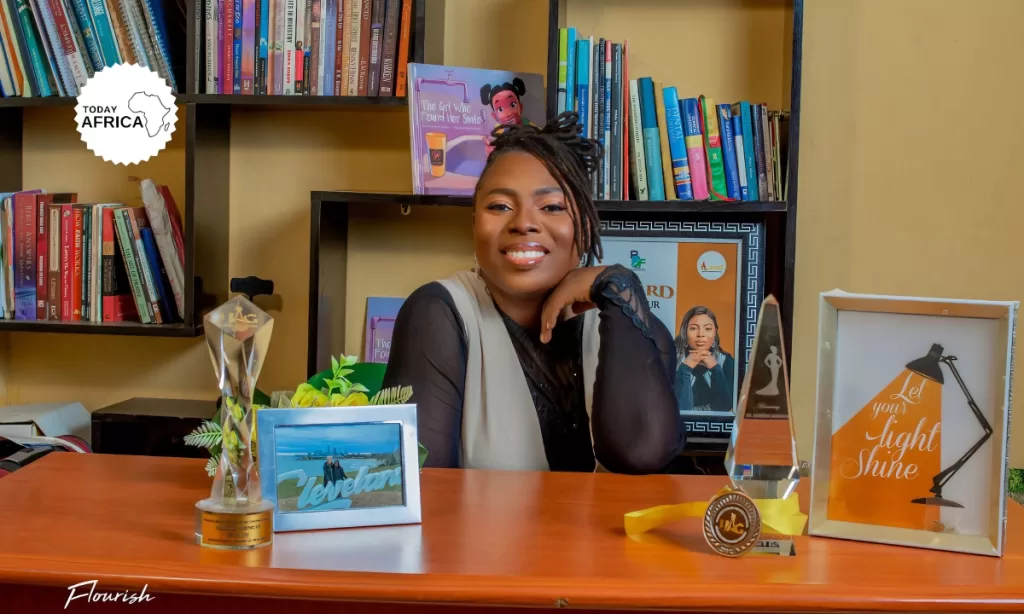
Would you like to be a part of it? And that’s how the DentalCare Foundation started. And that’s why we actually really work in rural communities because we believe that most of these people don’t have access and they can’t have court. So why can’t we bring something to them?
What are the challenges that you have encountered in advancing oral health equity and how did you overcome them?
I think the number one challenge is the fact that oral health is still silent worldwide. Because especially when it has to do with money, like reaching to the underserved committee means that you need money and you walk up to people and say, I want you to be a part of this organization.
And somebody tells you, people are dying of AIDS. People have tuberculosis. People have bigger issues. Why should I spend my money on the mouth? Nobody has ever died of a toothache. Are you getting it? So that’s one of the limitations. The limitations of oral health are still so silent and people don’t value it a lot.
So it took a lot of convincing to even get volunteers on board. And it took a lot of convincing to also get grantees and grant makers on board. So it’s a major issue. But one of the things that I kept doing is, I kept using storytelling to convince people, storytelling to change the mind of people in terms of telling them, see, there’s a child that couldn’t go to school because they were in severe pain.
And that child has been denied the opportunity to either become a doctor, an engineer, or a professor or a teacher someday. So using that heart of storytelling, I just began to, should I say, seep into the hearts of people and began to advocate more on oral health. And that’s why I’m very, very passionate about advocacy online. I’m very loud on advocacy. I’m very loud when speaking about why oral health should not be silent and why the mouth is important to the body.
For instance, when we are trying to apply for grants, and we’re trying to tell volunteers that come and be a part of us. There are questions about when there’s HIV, there’s tuberculosis, there’s cancer. There’s so much advocacy for things that are making people die around the world. Why should I be a part of the work that is going on around the mouth, when the mouth has never killed anybody?
The mouth may not have killed people in terms of death, but the mouth has killed potentials. We see children that are unable to go to school. Because they have to deal with long term pain in their mouth. And sometimes their parents have to take them out of school because they can’t deal with that. This is probably a doctor that has been denied the opportunity to become a doctor someday. Someone being denied the opportunity to become an engineer one day.
So one of the things that I did personally is to use storytelling and the children I have worked with. To share the story that these lives matter too. Just because of the mouth does not mean it doesn’t contribute to the body. There are many children who are missing school. There are many parents that are missing work because they have to take their children to the dentist.
And this is just a ripple effect both on the productivity of the nation, productivity of individuals. And the children themselves. So I mostly use storytelling and I’ve seen these go a long way in getting grants. We’ve been able to get volunteers to also join us. Because we realize that it’s just that most people are not informed.
I’m telling you that an average elite in Nigeria who can even afford to go to a dentist would probably haven’t been to a dentist their whole life. Because they think there’s nothing wrong with their mouth. They think it’s not a headache. So why should they go and check their teeth even when they see a hole in their teeth. They’re like no it’s just nothing.
There’s a lot of misinformation out there or should I even say lack of information. It’s all about getting the information out there. And letting people know that oral health matters and it’s part of our body. What people don’t even know is that the first presentation of HIV, diabetes, some cardiovascular prevent in the mouth.
That means that you could have saved yourself a lot if you just went to a dentist or if a child had access to a dentist. A life would have been saved just because it was caught early. But most people are not informed about that.
How does your foundation engage with local communities to ensure these dental health care needs are met in these communities?
One of the things we do or we advocate for is that we just don’t want to be that person that brings the bread to the community. We want the community to champion their own advocacy. Because that act of NGO is coming, giving toothbrushes, giving this and leaving doesn’t really solve anything.
So one of the tactics that we use is we understand that while we are working on policies. While we are working on the health educational system. While we’re working on the policy makers to bring dental clinics to these communities. We can start from somewhere. And that’s understanding that oral health diseases can be prevented, 100% prevented. So we start from prevention.
Read Also: How Two South African Entrepreneurs are Helping African Organizations to Thrive
We go into communities, we go into the Obas palace. We go into schools most especially, and teach teachers to teach children on how to properly take care of their mouth. So that when we leave there, this can be replicated. There’s a replication of the work we do. Then we go into these communities and tell them that this is what is needed. And these communities are even beginning to rise up themselves to go to the chief and say, we need a dental clinic.
So this is going beyond us. When we go to the community, we locate who is the strongest voice. It may be a market woman, it may be a chief. Who is the strongest voice in this community? Who they would listen to? Because we understand that there are cultural barriers when it has to do with some of these things. So we’re not coming like we’re just bringing something new. We are bringing an understanding to them, to let them know that, okay, this is your rights, advocate for it.
We are actually getting involved by raising grassroots advocates. And that’s one of the reasons why we are beginning to use art now, especially when it has to do with children. Because storybooks are self-reliant. I may not be in 100 communities today at once, but a storybook can get to 100 communities at once.
You understand the power of music in our local language. Add this, how this can speak to our hearts. There are some songs that we learnt as children that can never ever leave you because of the information that is packed in those songs. So that’s what we are using. We are using this to empower the community. So coming out with songs, coming up with music, coming up with stories and these
These communities are coming up with their own ideas to kind of remain sustainable. But the goal is eventually to get policymakers to say that oral health matters and these communities need to be equipped with a dental facility.
That means you are the one that creates the music, that draws the arts. You are the one that does everything.
(laughs) No way. There’s something called the power of teamwork. Even though I’m a writer, I am passionate about writing. I still work with kids, focus groups to see if those books are relevant. And it has to do with music. Even though I write a little bit of songs. Most of these songs are created by children. Because they know what appeals to them.
Recently, we started a project with rural kids in Ekiti State, Nigeria and rural kids in the Philippines. And they came together, these kids came together to write a song all by themselves that has to do with oral health and they titled it “oral health pledge”.
The song was translated to Yoruba. It was translated to Tagalog which is the Filipino language and this was all done by the children themselves. All we had to do was work with a team of engineers to come up with the melodies, to come up with the sound and all.
These things are not a one man thing, it’s more of a community thing and that’s what we are empowering. Like to say that you can be in Enugu and create music that resonates with children and we don’t have to be there. We just want to advocate for that.
What are some of the key initiatives or programs run by your foundation that are aimed at children?
One of the most of the key initiatives is that we have what we call Healthy Mouth Healthy Kids. We also have a project called Project Dental Santa. Healthy Mouth Healthy Kids is a project whereby we go to schools, we do screenings for the children in the schools. We go through like their mouths and see children that need dental care services, we provide those dental care services to them.
We also give them oral health care kits. And these oral health care kits consist of the toothbrush, the oral health storybook, oral health workbook, and a toothpaste. So it’s about empowering them. We do this all year round. We go to different schools, different communities. Sometimes we ask people, can you suggest a school that you want us to visit? Can you suggest a place, a community that you want us to reach out to? So that’s what we do in terms of the Healthy Mouth Healthy Kids.
And the Project Dental Santa is majorly a project where we do every December, when we bring kids from rural communities together. It’s more like a celebration. So kids come together to celebrate everything; arts. So there’s a drama for kids around the mouth. There’s music. Then there’s a Santa Claus that is giving oral health things to them.
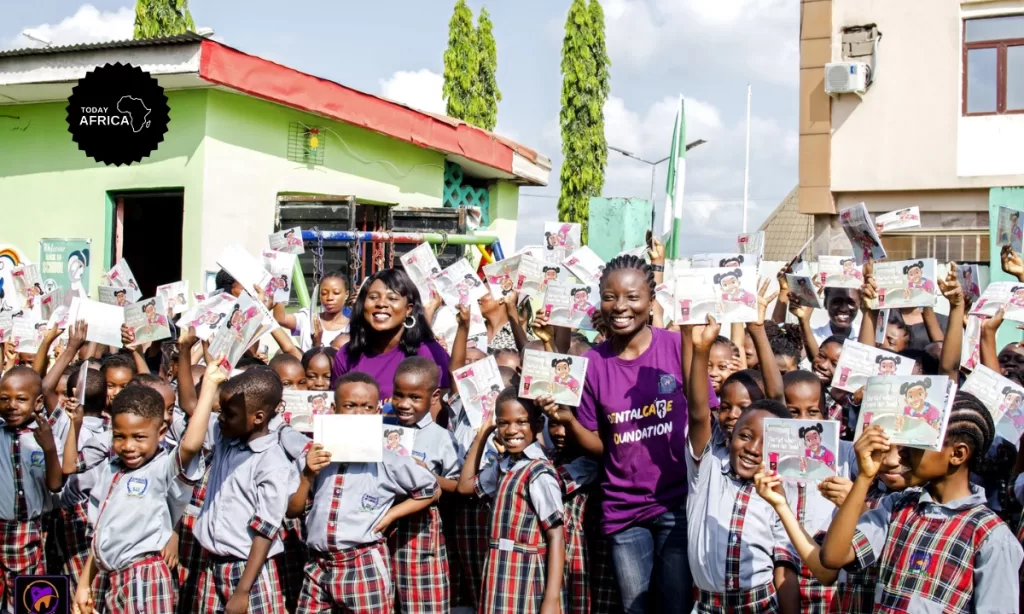
We reach out to kids from orphanages. It’s always a fun time for the kids. It’s just also to get the children to act on their mouth health. Those are projects that we run. And we recently started a project for kids right now. And it’s still very young, which is about two months ago. This is majorly for the older kids between the age of 12 and above where we started to use virtual reality to teach oral health education.
We got these virtual reality headsets. It is immersive and it’s easy for you to remember something like the angle at which you should brush your teeth when you see it in a virtual reality headset. For people that have experienced the virtual reality headset is very immersive it stays in your memory.
Read Also: How Ismael Belkhayat is Transforming Traditional Retail in French-speaking Africa
We are beginning to engage children also with that virtual reality. Also the cross-cultural collaboration between countries that we recently started with kids because it’s much more than the oral health thing. We wanted kids from different countries to come together and learn about oral health in different words, learn about different cultures, and make friends around the world. So those are initiatives that we are coming up with as it pertains to children.
As the author of the book titled, The Girl Who Found Her Smile. What is the role of literature in promoting oral health care?
The thing is that literature is still very scarce. Because one of the things that drove us to, or should I say, drove me to write about the book was during COVID when we’re not able to go into schools, we’re not able to go into community. But books were not banned, even though people were banned from going to schools and people were banned from going into committees.
Children still had access to books. Children love books. One of the key initiatives was to meet children where they are at. And we know that children love cartoons, children love story books. And that’s why we wrote the book. The book is about a girl who loves lots of candies and doesn’t like to brush. So there are lots of kids that would connect to that because even as a kid, I remember how I hated brushing.
Even as an adult, I still hate brushing. But I know that I have to do it because it’s key to my health and it’s key to my mouth. We use these books to spread messages in a fun way to kids. And that is why literature is very important when it has to do with spreading around health equity. Because it transcends barriers. We’ve seen this book translated into French, Igbo, Hausa, Yoruba, Spanish. It;s in two Filipino languages and this same book passes across the same message to kids across the world.
That’s something that I may stand in front of a Spanish kid and not be able to give them accurate information about their oral health because of barriers of culture or language. But this book has done that and it shows how literature can transcend even the equity that we are trying to break. So I tell you that literature is key in terms of passing across oral health information to children.
How has the Healthcare Sector supported your vision and mission about providing dental care access to the underserved communities here in Nigeria?
Let me first say that politics will always be politicking. One of the first challenges that we had at first was we initially had a barrier with the government. There was a particular time that the government was like, why are we doing this? There’s already a provision for this.
But the truth is we have to speak up that if there’s already a provision for this in schools, why are the children not getting access to oral health care services? And because we were speaking out loud on this, I was writing opinion pieces. It was being posted in international journals.
I remember like the Ministry of Health calling me and saying, oh, why are we doing this? At the end of the day, when they saw that we’re not going to keep quiet about this, they asked about ways that they could partner with us. And that’s the good thing. That’s one thing that policymakers must understand that nonprofit organizations are not meant to stand alone. We are all supposed to work hand in hand. It’s not supposed to be a stand-alone thing.
I think gradually more government facilities are beginning to come into light about partnering with NGOs. But I can still tell you that it’s still very low. One of the good things about working in Eikiti and some of the cities that we’ve worked in is that we have to partner with the educational board because we are working with children, so we have to get approval from Ministry of Education. We have to get approval from the Ministry of Health just to ensure that what you’re passing across to the kids are very essential.
So there’s a lot of partnership going on on the ground. Even though it’s all written in paper sometimes and it takes a lot of time for those things to be established. So I would still say it’s still a work in progress. I tell you it’s still a major struggle. There’s a lot of neglect and it still has to do with the government in rural communities.
If you just think about it and you just think about in the past five years, how many governments do you see that are really doing things when it has to do with oral health? Well I can talk about Kebbi State because one of the things that we did two years ago was we partnered with the Kebbi State government. The wife of the governor is doing a major thing in terms of oral health with kids. There was a major oral health drive in schools in Kebbi state.
It’s happening too in Ekiti state now and it’s also happening in some places in Lagos state and all that. But I still feel that some government or ministry of health in other states are still low on action.
The work you’re doing is amazing work and it requires money to push all this. How do you raise funds to push out these initiatives?
At the beginning it wasn’t all rosy. I had to start with my own money, even registering the organization. And that’s the thing that people will never believe in your vision if you yourself don’t believe in it and are not willing to spend money for it. So one of the things was that the money I had saved as a dentist, I used that to first push the work. There were some impacts and results. And I began to write stories, grants around those impacts and results and push it to funders.
I can tell you that I’ve had many rejections more than I had than I had acceptance. But I think one of the things that really helped was one of the first grants that we got was a pollination grant. Even though it was small at that time, it was just $1,000. But because the pollination grant was a major grant maker in the international field that was really known.
We actually did a lot of work with that money and got a lot of results. So we will go to funders and say see we got these grants and we were able to make this impact and because of that name there was a ripple effect. Suddenly there was a whole network that was open. We were able to get more grants of about $5,000. Because we had this history of getting grants, they were beginning to open up.
And I think the amazing thing is that we also started to use art. We started to use a whole lot of initiative, which is different from the traditional way of NGOs doing things in terms of promoting oral health. There were more Western funders also interested, they are interested in VR because it’s technology. They are interested in art because it’s in technology. They are also interested in books. So there are a lot of funding opportunities in this field.
And the truth is I also took advantage of my network. I had friends abroad. I have friends in different communities. For instance, all the translations were unpaid because I had friends. Like the French translation was done by a friend in the United States who spoke French and did French as a third language course. And I didn’t have to pay for that and that person connected me to the person that did the animation which was supposed to cost up to $4,000 and was done for less.
It’s important that people understand the power of your network and community. This work has expanded to the Filipino community. How did this happen? I went to a conference and in that conference, there was a mayor who is like a governor of a community seated in that place. And we were asked to introduce ourselves and the work we do and what we want people to join us to do.
I spoke about my book and I’m like, I want this book to get into communities around the world. And the mayor came to me and said that, I really love this initiative. This is something that I want to happen in my community. And that’s how the old work expanded into the Philippines, just by networking. And this whole funding and idea has been done by them. I still don’t have to do much about it. So it’s really the power of network.
One thing I’m taking out from you today is that I should work more on my network. What about those that have a good network?
You’ve to start from somewhere. You just connected to me. I know you now. Knowing you means that you know some people. You knowing me means I know some people. So, paraventure you want to write a book and you’re saying, well, Dr. Adekemi, do you know somebody in the publishing sector that can help me work on this? I can go search my network.
It’s all about connecting to people. And that’s why for me, I take advantage of every single person I meet to see how I can leverage on and of course what I can offer to them also, but also what they can offer to me. So it’s not about the money, it’s about the people they can also connect me to.
In what ways do you collaborate with schools and community centers to promote oral health education?
Majorly in collaboration with schools, we go there first, we write to them. We speak to the key people, the key stakeholders in the school, which are maybe the principals, the teachers, and we connect with the parents of the school. Then we tell them these are the things that we want to do. And one of the things is they speak to us on okay, what is the time that is available, the best time for the kids. So majorly it has to do with liaising with them.
And because we also want continuity across the schools, we keep in touch with them. When it also has to do with community, we have to write to them. Communities are even more technical because when you go to the community. They will tell you, go to the Oba, go to the chief, go to the chairman, go to this. So there’s a lot of, I’m sorry to use the word, but there’s a lot of lobbying. When I mean lobbying, lobbying in a good way. I mean lobbying that you’re presenting yourself to say this is what we do. We are bringing something good to your community.
You just can’t get frustrated and tired because it’s a lot of work. So some Mondays, some Tuesdays, we are going to schools back to back. We’ve had schools that gave us the date and after going to that school that day, they said they were not ready. You know, spending some more time, spending so much, but you won’t give up. You still go there and you keep going there.
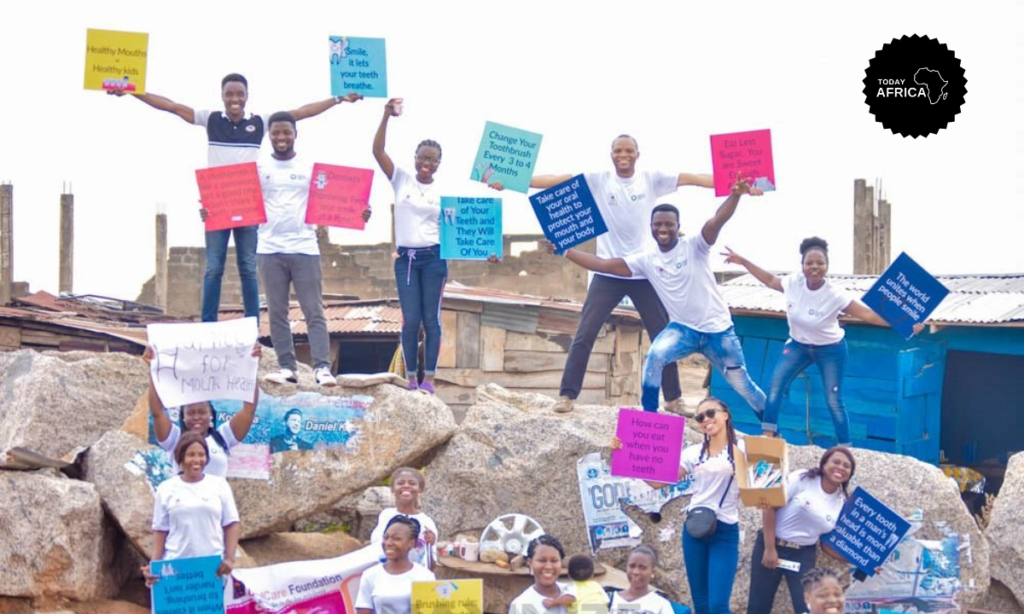
For instance, some schools were asking why we don’t want to sell the book to the children. So they wanted to have the books and sell it to the children. There’s a lot of bureaucracy in this thing. So we just have to make sure that we are the heart of it and almost hammering or clamoring for the right thing. So it’s all about writing to them, building those connections. And we also do one thing. We help to train their teachers.
Is your NGO only for children or do you include adults and elderly ones?
When we started; we started with a whole lot of adults and everyone. But one of the challenges of a nonprofit working in the field is when it has to do with oral health and when it has to do with adults. There’s a lot of complications that you may not be able to handle in the field.
That’s because adults have some other complicating diseases. There are some things I can’t do in the mouth of an adult. If the person is diabetic, if the person has a heart issue. I have to work on that, maybe a general clinic setting and all that.
There’s still a lot of issues around that. I don’t want to use the word even though we still attend to adults, but we don’t tell people that we are for adults. But when we get to communities and adults come and sit down, we actually go ahead and treat them. Seeing that they don’t have any complicated issues like diabetes or something that can be complicated on the field.
But we also majorly focus on kids because we want to catch them young. Because we understand that the children today are the ones that become the adults tomorrow. So when we are able to catch them young and they become adults tomorrow they can train their own children. Before we know it the ripple effect of the impact that we’re having on children we see in other younger generations. It’s transgeneration; from generation to generation.
I can tell you that as an adult it’s very hard to convince an adult the way they brush. I was talking to an adult recently and I said, do you know that you’re not supposed to spit out your toothpaste? The person was like, ah, no, I’ve been doing that for 14 years of my life. I cannot do that. You mean that I will brush my teeth and leave the toothpaste in my mouth. I cannot do that. No matter what, I cannot do that. We go to the same schools and we meet children that they’ve not actually been spitting out. They’ve been rinsing out their mouths.
And we tell them, do you know you’re not supposed to rinse out? You’re just supposed to spit out and spit out very well. They start doing it immediately. Even their parents are like, are you sure this thing is true? My child is clamouring that they should not rinse their mouth.
But for an adult it is very difficult. Even for me, when I went to dental school, the moment I knew that I was not supposed to rinse my mouth, it took me months to adjust. So you can see why the whole thing is like that.
This means one can use any toothpaste or there’s a particular toothpaste that one should use in order not to spit out?
Most times because you need fluoride for the strength of your teeth and fluoride is not of course something that should be ingested. But at the same time you need fluoride to stay in your teeth or on your teeth for a little while for it to work. I’m careful not to tell everybody to spit out because depending on the nature of your toothpaste.
There are some toothpaste that don’t have fluoride and they have another component entirely and the manufacturer will write on the body and say it’s okay to rinse out. But if you are using the common ones in Nigeria which have fluoride in it. The thing to do is to brush after brushes spit it out very well and leave the rest in your mouth for the fluoride to work
And that fluoride needs to sit in your mouth at least 15 minutes for it to work and to strengthen your teeth. But the moment you finish brushing and you use water to rinse your mouth. Some people even gargle their throats, throw it out, and rinse everything away. Are you getting it? The only thing that you did was you succeeded in cleaning the dirt from your mouth, but the fluoride did not strengthen your teeth.
What ways can the Nigerian healthcare sector help you to advance this gospel of oral health in our rural communities, in the urban cities, and everywhere?
I think number one thing is um the power of advocacy because our government and ministry of health is not speaking loud enough on oral health itself that’s number one. Because when we advocate people to go for checkups, then it’s easy for us to spread the message on oral health. But it’s not just about that. Did you know that most national health insurance covers for extraction and extraction only?
So it’s like telling somebody, hey guys, the only money that we can give is to remove your teeth. We need to expand our national health insurance to cover preventive care, some prophylactic care, like filling, and some other things that people need. The truth is that some health insurance doesn’t even cover dental work at all. If you go, people will say, ah, my health insurance does not cover it and I cannot pay for it, which means the government needs to push more money into oral health care.
Nigeria has an oral health policy that covers all these, but you know the challenge with policies is that it’s not enacted. These policies are not put in action. So these policies are just there on paper. We want our ministry of health to majorly take action on these policies.
Another major issue is that we have a shortage of dentists. We have one dentist for almost 100,000 people. It has a population because we have almost like in Nigeria currently only 4,000 dentists. In the states that I’m located, there are just roughly 15 dentists and 788,000 people. Please tell me, out of these 15 dentists, almost 12 of them are located in the capital city.
Most of these rural communities don’t they don’t even have a dentist and I understand because of the cost of going to a dental school, the years that people spend in dental school, the brain drain, people are beginning to move out of Nigeria, even dentists are beginning to move out of Nigeria. So I think it’s best if the government creates work satisfaction also for dentists. But also if we can raise more people to study dentistry, we need to raise more grassroots people to study dentistry.
People that will return to their community and say that, oh, this committee has done a lot for me. I’m going to come back to serve this community as a dentist. I know it’s a lot of work. I know it’s not something that will happen in a day. It’s not something that will happen in maybe a year, but it’s something we can start one community at a time. And it starts with advocacy.
See Also: How Joshua Igba is Building the Fasting Interstate Courier Company in Nigeria
We’ve gone to communities and somebody looked at me and said, I didn’t know that there’s a doctor for mouth. They didn’t know that there’s something called dentistry at all. They didn’t know that there’s something called a doctor for mouth. Are you getting it? It shows how there’s still a lack of all this information in those communities. And while we are waiting for dentists to rise up, there’s something that we have, community extension workers. We have health workers in almost every rural community. And there’s something called task sharing.
For instance we are teaching teachers to educate children in schools when a dentist is not present. Also, in communities you’ll find these women that take delivery of children, can you equip them with a little bit of health knowledge where they can pass that to the mothers that have given birth to these children or to the community in a smaller niche. So I do believe we can start from somewhere.
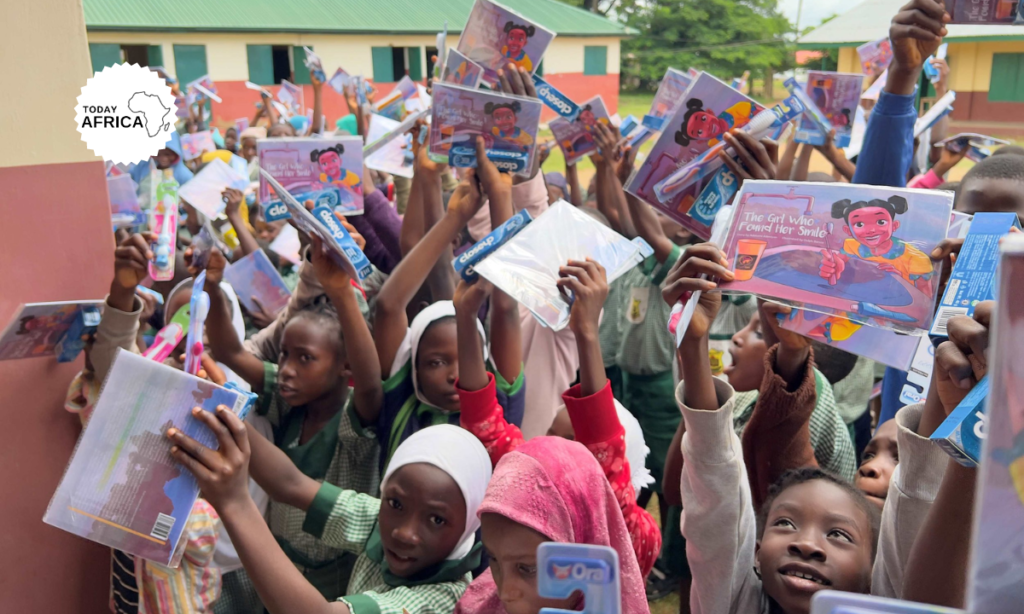
If you can’t start from building a dental clinic, you can equip people with knowledge to create these prevention messages or to carry out these prevention messages in these communities and we need more of that from the government.
What future plans or projects are you excited about that DentalCare Foundation is doing?
I think the one I’m most excited about is we recently got accepted to get the storybook in virtual reality, which is the first of its kind, not in Nigeria, but in the all-new Meta Quest. There is no oral health game, there’s no oral health story for kids ever. And this is the first of its kind and we’re working with an XR lab in Oxford University to deliver it.
I’m so excited, not just because we are just innovating this, but because this is also going to be in different local languages. It’s going to go into rural communities. These headsets are going to go into rural schools. Children are going to be able to also play with technology. So we’re not just making children or our health savvy but we’re also making them tech savvy in rural communities.
And I’m excited because I want a child to one day look at me or look at our community and say, I want to become a dentist or I want to become a tech person just because I encountered this. And that’s why I’m so excited about this project.
That means that technology is influencing oral health care.
Yes (smiles).
What advice would you give to other Nigerians or Africans who are starting their own foundation?
I think the number one question I always ask people who come to me or say that is that I always ask that, is there someone or is there an organization first in the community that is doing what you do? If there is, I’ll say volunteer, learn andI think this is one of the things I learned from my Igbo friend. I know there’s this training way that Igbo people learn things where you go and work in a place for a while…
Igba-boi
Yes. People don’t understand this thing is a game changer because it changes you. You experience things before you get there. There are a lot of things that will shock you in the nonprofit world. It’s better that you go and volunteer if you can volunteer. Get someone to mentor you, it’s not first about just jumping out to start.
Get a mentor, volunteer yourself, learn how things are done, learn about the challenges that you’re going to face. Learn about what is the edge I’m going to bring into this field. Leverage your network because as first money is not going to come from anywhere. Nobody is going to give you a 100,000 grant for something that’s for just an idea, especially when it is not a tech idea.
It’s very important that you will be willing to spend your money and spend relationships around you, so when you get it, keep saying it. Believe in yourself. Keep talking about those initiatives. Keep talking about it.
Use the power of storytelling to talk about the work. Document your impact as much as possible. But if you sit down, you will never do anything. But start from somewhere.
Find out more about Dr Adekemi Adeniyan
Click to read part two of this interview with Dr Adekemi Adeniyan.
Watch the interview here.
Leave a comment below and follow us on social media for more tips and updates:
- Facebook: Today Africa
- Instagram: Today Africa
- Twitter: Today Africa
- LinkedIn: Today Africa
- YouTube: Today Africa Studio

